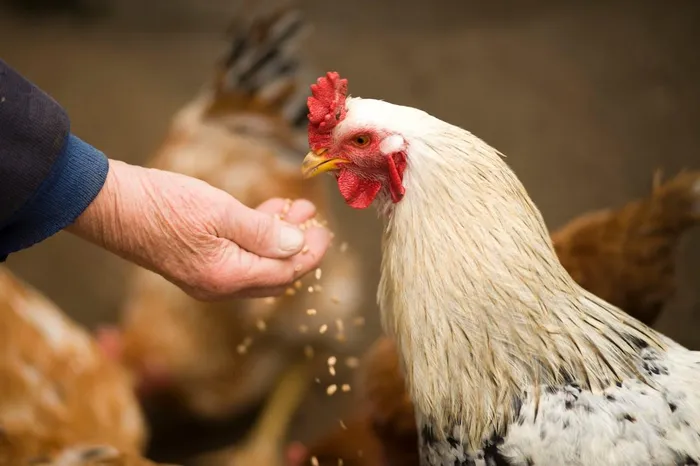Astral Foods secures permit for broiler breeding stock vaccination against avian influenza
AGRICULTURE

Astral Foods Limited (Astral), a fully integrated poultry producer, announced on Monday that they have received a permit from the Department of Agriculture to begin vaccination of broiler breeding stock against the Highly Pathogenic Avian Influenza virus which has had severe impact in Brazil and America.
Image: Pexels/IOL
Astral Foods has announced a major development in its efforts to safeguard its livestock and support the country’s food security.
On Monday, the integrated poultry producer revealed that it has received a crucial permit from the Department of Agriculture allowing the vaccination of its broiler breeding stock against the Highly Pathogenic Avian Influenza (HPAI) virus, a disease that has caused devastating consequences for poultry industries in Brazil and America.
After an extensive application process lasting 18 months, the Director: Animal Health from the Department of Agriculture has granted Astral the much-anticipated approval to implement a vaccination strategy at one of its large broiler breeding farms located in Gauteng.
This initiative comes in light of global concerns surrounding the H5 strain of bird flu, which currently represents a significant disease risk both internationally and within South Africa.
“This approval, under the very strict conditions of the 22 November 2023 guidelines published by the Department of Agriculture, will allow Astral to commence with a vaccination strategy on one of its large broiler breeding farms situated in Gauteng,” it said.
Astral said this vaccine was not for the H7 strain of bird flu which South Africa encountered during the severe 2023 outbreak.
“However, the prevalent disease risk, both globally and in South Africa at present, is the H5 strain of bird flu. A locally manufactured H7 vaccine awaits final registration,” Astral said.
“The requirements under which Astral has been granted permission to vaccinate include strict control of the vaccine through prescription for use by a poultry veterinarian, and controlled supply by the relevant animal health company. Equally important is the storage and security of the vaccine stocks by the poultry producer, which will be audited by the Department of Agriculture.”
Astral added that the vaccinated poultry breeding stock has to be kept under very strict biosecurity conditions and will be subjected to extensive weekly and monthly surveillance using molecular diagnostic techniques for possible challenges from any prevalent strains of the virus in the field.
Dr. Obed Lukhele, Astral’s technical executive, states that the vaccine will ensure that the birds develop immunity to infection from any potential circulating strain of the H5 virus in the field.
“This immunity will develop within three weeks of being vaccinated. The vaccine is designed to prevent the birds from succumbing to bird flu infection through the immunity that they will develop. The vaccine does not prevent infection from an H5 bird flu virus, but the producer will at least not suffer huge financial implications from losing their breeding stock or having to cull the birds due to infection,” Lukhele said.
“The vaccine allows the birds to recover and continue production, as the impact of an infection in the field is significantly less severe compared to unvaccinated birds.”
Gary Arnold, CEO of Astral, said their team has worked relentlessly on this vaccination application and made great strides to meet the stringent vaccination protocols.
“This milestone marks a significant step forward in Astral’s ongoing commitment to biosecurity and safeguarding animal health and welfare, whilst ensuring the sustainability of its operations,” Arnold said.
Arnold added that this proactive approach to disease prevention will see the approved farm, which represents approximately 5% of Astral’s total breeding stock, vaccinating in the coming few days.
“We regard this as the beginning of an ongoing process and offer Astral a “blueprint” for further applications for a number of its breeding operations for which approval will be sought.”
Wandile Sihlobo, chief economist Agricultural Business Chamber of South Africa, said that this was an encouraging step towards cushioning the South African poultry industry in this harsh environment of animal diseases.
“Indeed, the vaccination process is costly, but even more devastating is the impact of the avian influenza on business. The South African authorities have taken a pragmatic step of registering new vaccines,” Sihlobo said.
“The poultry industry is key to our food security, and we all remember the challenges presented by the widespread outbreak of the avian influenza in 2023. Starting to vaccinate now will ensure that we are in a better place as a country.”
BUSINESS REPORT